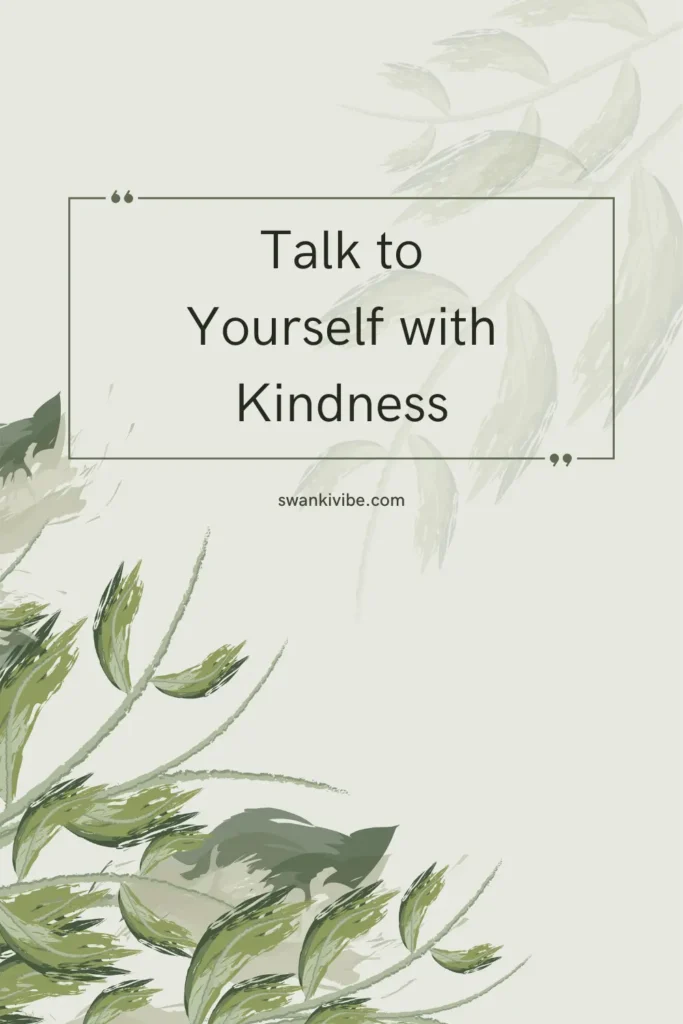You Deserve, Your Love
We spend most of our lives giving — to family, to friends, to work, and sometimes even to strangers. But in this constant act of giving, we often forget the one person who deserves our love the most — ourselves. “You deserve your love” is not just a quote for Instagram captions; it’s a truth many of us ignore while chasing validation and approval from the world.
This blog is a gentle reminder and a guiding light — that your relationship with yourself is sacred, and it’s time to nurture it.
Why Do We Struggle to Love Ourselves?
Before we talk about how to love ourselves, let’s understand why it’s so hard in the first place.
Here are some reasons:
- Conditioning Since Childhood:
Many of us were taught that putting ourselves first is selfish. This mindset makes self-love feel unnatural. - Societal Pressures:
Social media shows us filtered perfection — flawless skin, luxury lifestyles, constant happiness — creating unrealistic standards we compare ourselves to. - Unresolved Trauma or Past Hurt:
Emotional pain, heartbreak, or failure can damage self-worth. We blame ourselves and silently believe we’re not lovable.
Over-Achiever Mindset:
We tie our worth to success. When things don’t go as planned, we feel like failures — and love disappears.
What Self-Love Really Means
Self-love is often misunderstood. It’s not arrogance or thinking you’re better than others. It’s not fueled by ego or a need for constant validation. Real self-love is quiet strength. It’s a deep respect for your mind, body, and emotions — without needing external approval.
Respecting Your Needs
Self-love starts with listening to your inner voice. You recognize what you truly need — whether it’s rest, time alone, or emotional support — and you give it to yourself without guilt.
Forgiving Your Past Mistakes
We all mess up. But holding onto guilt or shame can block self-growth. True self-love means accepting that your past doesn’t define your future. You give yourself permission to grow beyond your old self.
Setting Boundaries
Loving yourself means saying “no” when something feels wrong. You protect your peace, energy, and mental health by drawing clear lines — even if others don’t always understand.
Letting Go of Toxic People
You don’t owe space in your life to those who drain or belittle you. Self-love gives you the courage to walk away from relationships that hurt more than heal.
Being Kind to Yourself on Bad Days
Self-love is especially important when you’re struggling. You show yourself the same kindness, patience, and compassion that you’d offer a friend going through a tough time.
You don’t have to be perfect to be lovable. You don’t need to achieve anything to deserve love — you are already enough.
True self-love is about showing up for yourself — every day — even when no one else does.
Isle Leo
You Deserve Your Love — Not Just From Quotes, But In Practice
Reading self-love quotes feels good, but real growth begins when you live them. You deserve your love — not only in words but through daily actions.
1. Talk to Yourself with Kindness
Start with your self-talk. The way you speak to yourself matters more than you think. If your inner voice constantly says, “I’m so stupid,” or “I’m not good enough,” you’re reinforcing self-doubt. Shift that voice. Talk to yourself like someone you deeply care about. Replace criticism with compassion: “I made a mistake, but I’m learning.”
You don’t have to wait to reach some goal to be worthy of love. You are worthy today. Showing love to yourself means resting when you’re tired, walking away from people who hurt you, eating foods that nourish you, and saying no without guilt.
Loving yourself in action also means setting boundaries, celebrating your progress, forgiving your past, and allowing joy into your life — even in small moments.
The truth is simple: you can’t build confidence or happiness by hating yourself into change.
You need love — your own love — as the foundation.
So don’t just post quotes. Live them. Practice them. You’re not being selfish — you’re being whole.

2. Prioritize Your Mental Health
Taking care of your mental health is not a luxury — it’s a necessity. In a world that pushes you to always be productive, it’s okay to pause. It’s okay to say “no” when you’re overwhelmed, and it’s more than okay to ask for help when you’re struggling.
You are not weak for needing rest. Breaks don’t mean laziness — they mean you’re human. Whether it’s 10 minutes of silence, a daily walk, deep breathing, or journaling your thoughts, these small practices can have a massive impact on your emotional well-being.
Therapy isn’t just for when things are “bad.” It’s a tool for growth, clarity, and healing. Even writing your thoughts out in a notebook can help you understand your feelings better and calm your mind.
Your peace matters more than people-pleasing. You don’t have to exhaust yourself trying to meet everyone’s expectations. The truth is, you can’t pour from an empty cup. When you protect your mind, you protect your energy, your relationships, and your ability to grow. So
3. Set Boundaries Without Guilt
Setting boundaries isn’t rude — it’s an act of self-respect. Saying “no” doesn’t make you selfish; it means you value your time, energy, and emotional well-being. You’re not here to be everyone’s emotional dumping ground or to constantly please others at the cost of your peace.

When you create space between yourself and what drains you, you make room for growth, clarity, and joy. Not everyone will like your boundaries — and that’s okay. Healthy people will understand and respect them. Toxic people? They’ll resist, complain, or guilt-trip you — exposing their true intentions.
Remember, boundaries are not walls; they’re filters. They let in what nurtures you and block what harms you. You’re allowed to protect your peace without feeling guilty. The more you honor your limits, the more self-love and confidence you build.
You teach people how to treat you by how you yourself.
4. Celebrate Small Wins
You don’t need to wait for a major achievement to feel proud of yourself. Small wins matter — they build momentum and self-belief.
Woke up early today? ✔️
Drank water instead of soda? ✔️
Said no to something that drains you? ✔️
That’s growth.
Every positive choice, no matter how small, is proof that you’re showing up for yourself. Celebrating these moments reinforces your progress and keeps you motivated. Don’t ignore the little steps — they lead to big change. Self-love grows when you notice your efforts and give yourself the credit you deserve. Keep going!
So don’t just post quotes. Live them. Practice them. You’re not being selfish — you’re being whole.

5. Let Go of Perfection
Perfection is a trap — and one of the quickest ways to destroy self-love. When you constantly chase flawlessness, you set yourself up for burnout, frustration, and self-criticism. You’ll never feel “enough” if your worth depends on being perfect.
The truth? No one has it all together. Real strength comes from accepting your flaws while continuing to grow. Self-love means saying, “I’m not perfect — and I don’t have to be.”
Repeat this to yourself: Imperfect, but growing. Flawed, but lovable. Learning, but worthy.
Progress matters more than perfection. Each misstep is a lesson, not a failure. Be proud of your effort. Show up for yourself as you are — not as who you think you “should” be.
That’s real self-love.

6. Spend Time Alone — and Enjoy It
Learning to enjoy your own company is a powerful act of self-love. It’s not loneliness — it’s freedom. When you spend time alone, you reconnect with your inner voice, your thoughts, and your feelings without outside noise.
Go on a solo coffee date. Take a quiet walk in nature. Sit with a journal and write what’s on your heart. These moments help you understand yourself better, build clarity, and strengthen emotional independence.
You don’t always need others to feel fulfilled. When you become your own safe space, you stop seeking constant validation. You start enjoying your presence, your peace, and your power.
Being alone teaches you that you are enough, even when no one else is around.
It’s not isolation — it’s self-connection.

7. Surround Yourself with People Who See Your Light
The people around you shape how you see yourself. That’s why it’s important to choose relationships that reflect the love, respect, and kindness you’re learning to give yourself. You deserve friends who cheer for you, not compete with you. Partners who support your growth, not shrink it. Family who uplifts your spirit, not drains your energy.
If love feels like constant stress, judgment, or walking on eggshells — that’s not love, it’s emotional exhaustion. Real love feels like peace, safety, and freedom to be your true self.
Surround yourself with those who see your light, even when you don’t. People who remind you of your worth, not question it.
You are not too much — you’ve just been surrounded by too little.
Choose wisely. Your peace depends on it.

8. Forgive Yourself for the Past
We all make mistakes. We all carry regrets, shame, and memories we wish we could erase. But holding onto guilt is like drinking poison and expecting to feel better — it only eats away at your peace.
Self-love isn’t just about feeling good; it’s about healing. And healing begins with forgiveness — especially the kind you give to yourself. You can’t move forward if you keep punishing yourself for what happened yesterday. You can’t build a brighter future while carrying the weight of your past.
Say this out loud, with intention:
“I did the best I could with the awareness I had.”
You’re not that same version of yourself anymore. You’ve grown, you’ve learned, and you’re trying — and that matters more than perfection.
You deserve your own grace.
You deserve to let go.

9. Treat Your Body with Respect
Your body is your home — the one place you live in every moment of your life. It deserves love, not punishment. True self-love means treating your body with care, not criticism. Move your body because it feels good, not because you’re trying to shrink it. Dance, stretch, walk — do what brings you joy.
Eat foods that nourish you, not just to look a certain way, but to feel energized, strong, and alive. Rest when you’re tired. Sleep is not a luxury — it’s healing. Don’t wait to earn rest. Your body deserves it now.
Wear clothes that make you feel confident and comfortable. You don’t need to change your shape to wear something you love. You don’t have to wait until you “fix” your skin or lose weight to feel beautiful.
Respecting your body is not about perfection — it’s about compassion.
You are worthy of care exactly as you are, today.
10. Remember: Self-Love is a Journey, Not a Destination
Self-love isn’t something you achieve once and never worry about again. It’s not a one-time event — it’s a lifelong journey. Some days you’ll feel confident and at peace. Other days, you’ll fall into old patterns of doubt, guilt, or sadness. That’s okay. Healing is not linear.
You won’t wake up one morning magically 100% healed. But what matters is that you keep showing up — for yourself, with kindness and consistency. Even when it’s hard. Even when your mind tells you you’re not enough.

Keep choosing yourself. Keep setting boundaries, honoring your needs, and forgiving your slip-ups. Progress isn’t about perfection — it’s about persistence.
Every time you say, “I deserve my own love,” you reclaim a piece of your power.
So be patient with yourself.
Celebrate the small wins.
And always remember: you are worthy, even on the messy days.
Final Thoughts
The world constantly asks you to do more, give more, be more. But rarely does it tell you to pause and ask — “How am I treating myself today?”
This blog is that pause.
So if you’ve been waiting for permission to rest, to heal, to love yourself…This is it.
You deserve your own love.
And not just someday — but right now.
“Want more content like this? Check out our blog page for the latest posts!”






